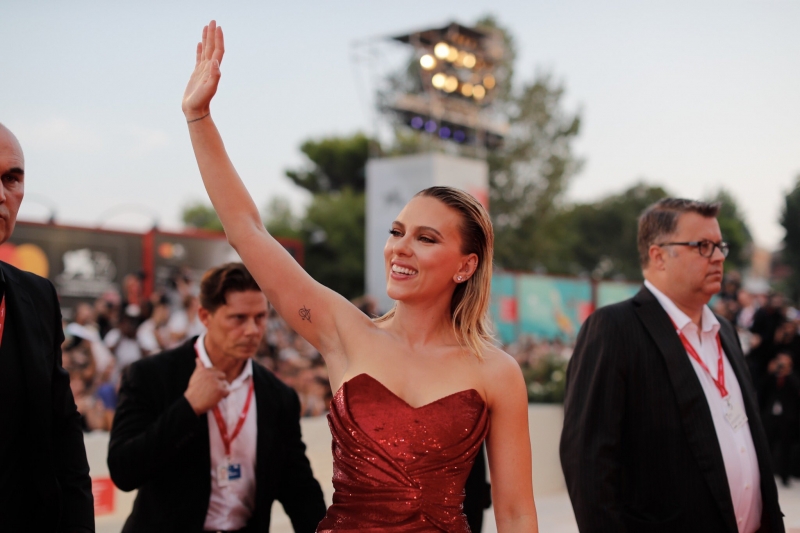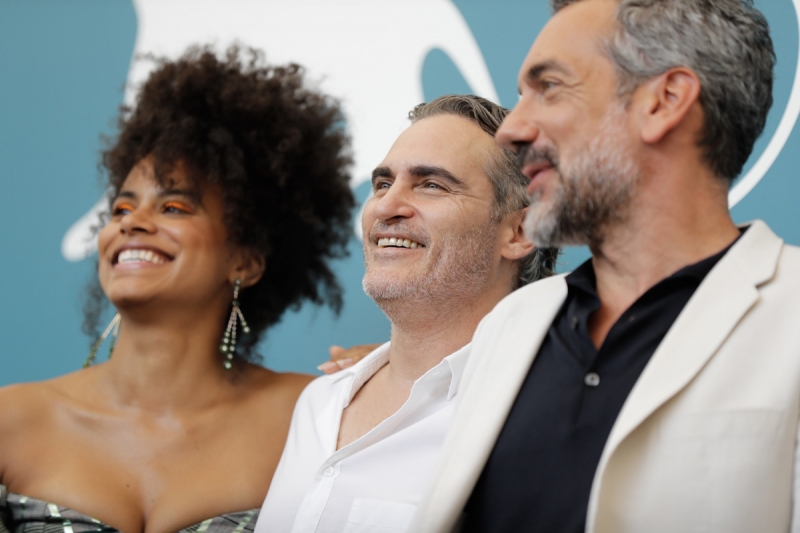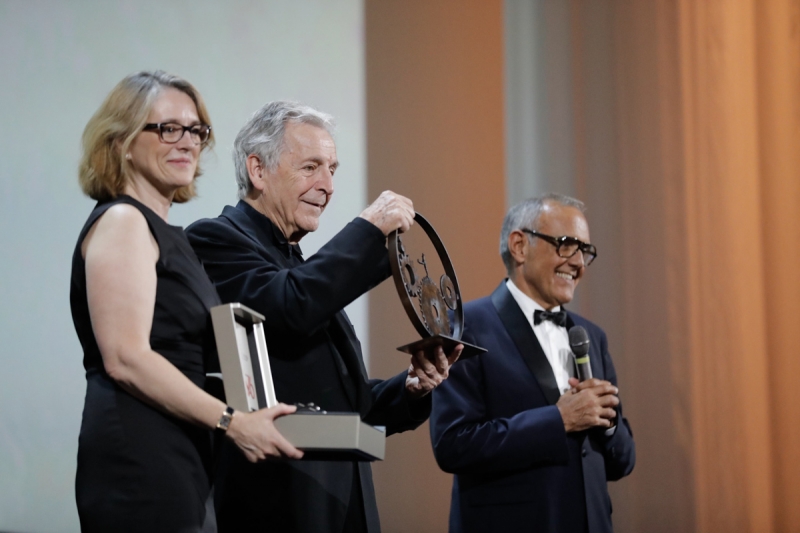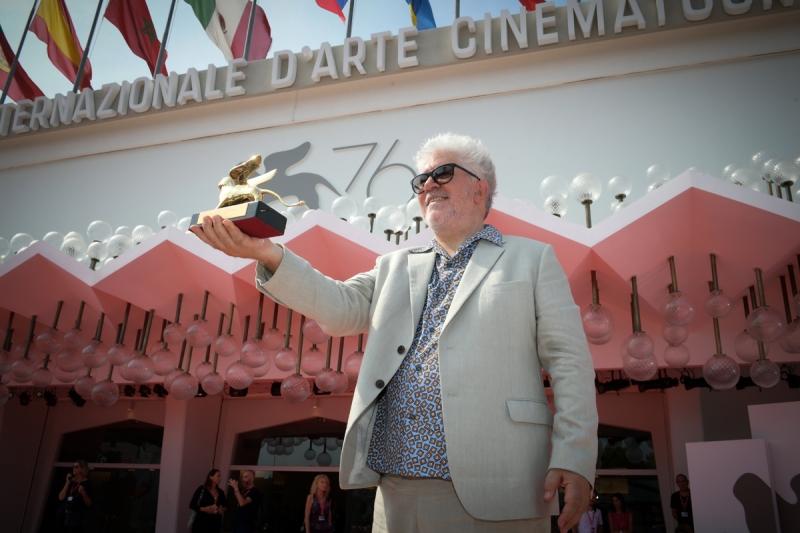We are publishing the following statement fueling the controversy about NETFLIX films' selections in large festivals (without theatrical release) It came to us from CICAE, AFCAE, art house cinema organizations which see festivals as platform to theatrical film distribution. Many festival might object strongly to that statement.
"For its 76th edition, Alberto Barbera, artistic director of the Venice Film Festival, has selected two films, produced and distributed by Netflix, to enter the competition. In the 23rd August edition of the magazine Le Film Français, Barbera justified his decision: ‘If (Netflix) proposes a film, I do not see a reason to refuse it, unless based on poor quality. This subject is highly topical currently, but in two or three years’ time, everything will have changed. It is already, in a way, a problem of the past. However, it is true that there is a problem between theatrical distribution and online platforms. But we cannot ask a festival to take responsibility for an issue that lies in the whole cinema industry.’
Alberto Barbera makes a doubly momentous mistake; both in his analysis and his position. In the case of Netflix films being of adequate quality, the question is not about knowing if they should be selected but HOW: with a release in theatres like any other film? In competition?
The Venice Film Festival is the oldest cinematographic happening. It has built both a prestige and a reputation, which are now its most precious assets. Its status: a premium display which offers a worldwide launching pad to two dozen privileged motion pictures.
The debate on the presence of Netflix in the major festivals has been ongoing for three years already; one can now draw lessons from it. Last year, Roma was first rewarded in Venice and then at the Oscars. Does this validate the Venice Film Festival’s strategy? It’s a matter of perspective. From Netflix’s and Venice’s points of views: yes, absolutely. For the film, nothing is less certain. This major film piece has not benefited from real exposure on the big screen – a first in history and an evident waste: it is a denial of the essence of the cinema as collective entertainment with high social value. Another sensitive question would be: how many viewers did watch Roma? No one can tell. The online platform made no comments on that matter. A CNC study of December 2018, based on a sample of Netflix subscribers, showed that the film had been relegated to umpteenth position. A Mexican Golden Lion, in black and white, with no well-known cast, which dropped off the maps of algorithms. Nonetheless, it is surprising that a Festival, the mission of which is to prepare movies for their release, coddles its happy few but still remains indifferent to the conditions in which the AUDIENCE receives (or not) a winning film.
Two years ago, in Cannes, many commentators considered the presence of Netflix in large festivals ‘unconditional’ and part of ‘the sense of history’; as if it was a requirement, that everything was written ahead of time and the unfettered logic of liberalism had to be imposed. However, in 2019, we witnessed a turnaround from these very same commentators, who then believed that the film selection at Cannes Film Festival (without Netflix) had been the best in many years. What seemed inevitable in 2017 became irrelevant in 2019. The eloquent illustration of this change was the limited impact and distribution of Okja by Bong Joon-Ho, produced by Netflix in 2017, and Parasite, the Palme d’Or winner with tremendous public success by the same filmmaker. Bong Jooh-Ho declared that, he would, from now on, put conditions on any potential collaboration with Netflix for releases in theatres. Allow me here to commend the Festival de Cannes for its position in its commitment to the primacy of releases in cinemas.
The truth is that we are facing a turning point. Festivals take place at symbolic and strategic places. It is nonsense to say they are out of the industry.
The festival director has an extraordinary power: to either say yes or no. And if they say yes, there is a range of possibilities: competition, off competition, special screenings… In a festival, the artistic dimension prevails over commercial considerations: the aim of a great film is to be unveiled in theatres in the first instance. Let’s be serious: can we really imaging the masterpieces of Kubrick, Fellini or Kurosawa be deprived of the setting of a silver screen? To validate and to trivialise the absence of a release in theatres is a considerable devolution.
For the last sixty years, if national television channels wanted to have their place in the sun at the Lido, they had to respect some rules; co-produce films and diffuse them AFTER their releases in cinemas. Should the global online platforms be exempted de facto from these obligations? General interest in films only comes after the special interest of a powerful company and the short-term vision of a Festival largely funded by public money. Small companies are obliged to pay their taxes while multinational carry out tax optimisation - rules change according to the agent’s span. And yet, the cooperation between the main events (Cannes, Venice, Berlin), all facing Netflix with a united front, could once again compel the platform to reconsider its position. Nothing is irreversible and the conundrum over the release of Martin Scorsese’s new movie clearly shows that nothing is settled.
But deep down, what matters most is the difference in ‘nature’ that lies between platforms and producers and traditional distributors – a difference that should be obvious to the Venice Film Festival. The foundation of the platform is the algorithm. The idea that a consumer of cinema REPRODUCES behaviours and that this reproduction by recurrent incitation allows the algorithm to anticipate the consumption as well as to enhance the cost-effectiveness of the system. This is the path towards uniformization of both films and tastes; the signatures being the luxurious gondola heads to a business based on mainstream. Alejandra Iñárritu takes this approach by denouncing ‘the algorithm dictatorship’, both for filmmakers and the audience – the art-house cinema genre belongs to the unforeseeable, the prototype and the arbitrary. Discovery and curiosity are the driving forces for a viewer of art-house cinema.
Netflix is just like a large restaurant chain which would like to get three Michelin stars. It does have the ambition and the financial means, but it does not have the essence, let alone the vocation. Supporting and communication this ambition without negotiation is to betray the initial mission of a major festival, which must defend the works first and foremost. "
François Aymé, President of the AFCAE (French Arthouse cinemas association)
*Marriage Story by Noah Baumbach and The Laundromat by Steven Soderbergh.















